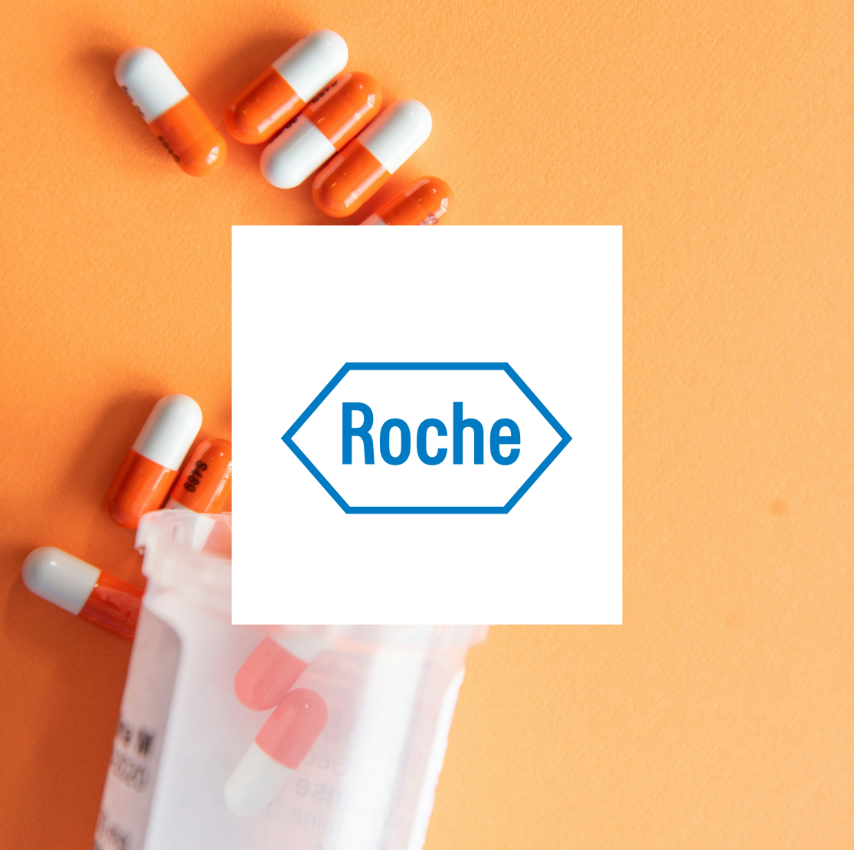From bottlenecks to breakthroughs: Modernizing clinical data at scale

Industry
Life Sciences
Challenge
Roche’s legacy clinical data platform struggled to scale and meet compliance demands, hindered by performance issues, manual processes, fragmented data pipelines, and the inability to unify CRF and non-CRF data across hundreds of trials.
Solution and Results
Datavid transformed Roche’s clinical data platform by migrating it to a scalable, cloud-native architecture and introducing automation across the delivery pipeline. The result was a faster, more reliable, and compliant system that significantly improved performance, streamlined operations, and empowered research teams with timely access to critical data.
Technology used
Progress MarkLogic, AWS, Snowflake, MarkLogic DHF
“Datavid is reliable partner with expertise in MarkLogic. Their engineers deliver significant value to our clinical trials data hub platform providing technical leadership and mentoring other junior team members from our team.”
Sushil Sundar
Principle Program Manager, Roche

About Roche
Roche has over 125 years of innovation in biotechnology and healthcare. Recognised globally for its scientific leadership, it consistently ranks among the top three pharma companies for its work in advanced therapies and diagnostics.Setting the Scene
In the highly regulated and data-intensive world of healthcare, speed and precision are everything. For Roche, a global leader in pharmaceuticals and diagnostics, ensuring that critical data systems perform efficiently across departments is vital to accelerating research and delivering patient value.
To support compliance and regulatory reporting, Roche had implemented a clinical trials data lake platform (DCH), hosting 360+ clinical trials and more than one billion documents. However, architectural limitations were beginning to hamper performance, delay innovation, and slow down access to insights across studies.
Faced with rapidly growing data volumes, (over 50 terabytes), legacy silos, and increasing regulatory pressure, Roche partnered with Datavid to modernize its infrastructure, migrating to AWS and unlocking the scalability, resilience, and automation needed to future-proof its data operations.
The goal: create a cloud-native platform that is agile, compliant, and optimized for performance, capable of supporting large-scale analytics, automation, and regulatory workflows across global research teams.
The Challenges
Creating a compliant, scalable foundation for insights
Roche’s cross-departmental data platform was intended to streamline clinical data operations, but it was delivering suboptimal results:

- Performance issues and rising infrastructure costs
- Slow feature delivery due to manual handoffs and inefficient development pipelines
- Difficulties harmonizing data across formats and domains
- High manual overhead for compliance and reporting
- Lack of elasticity, cloud-native integrations, and automation
The rigid infrastructure couldn’t keep pace with Roche’s expanding data operations.
Legacy silos and inconsistent data integration models across EDC (Electronic Data Capture: systems collecting CRF data (like patient visits, vital signs, etc.) and non-CRF (all other data sources not based on case report forms, like lab results, imaging, pharmacokinetics (PK), flow cytometry, and real-world data) sources made it difficult to build a unified clinical view.
Teams struggled with inconsistent integration models, fragmented data pipelines, and the need for real-time insights across hundreds of trials, making auditability and regulatory compliance increasingly difficult to sustain.
Facing similar challenges?
Book a free discovery call with our data platform experts.
The Solution
A cloud-native architecture and automated delivery pipeline
Datavid conducted a full architectural and operational review of the system and uncovered critical opportunities to optimize both the platform design and the software delivery model.
The review revealed that the hybrid waterfall/agile development model, coupled with a lack of automation, was causing unnecessary delays and high release costs. The key gaps were identified in agility, scalability, and compliance-readiness.
Datavid’s modernization approach focused on two core areas:
1. Architecture: AWS-powered, resilient, and compliant
A report was delivered outlining how to optimize the system for performance and cost-efficiency. Key enhancements included:
- Migrated the on-premise MarkLogic platform to a multi-zone AWS cluster.
- Integrated MarkLogic Data Hub Framework (DHF) with Snowflake to support real-time ingestion and harmonization of structured and unstructured clinical data.
- Standardizing clinical data formats to make regulatory submissions smoother, faster, and fully compliant.
- Adverse Event Reporting (AERO) and Study Build Automation features for operational streamlining.
- Implemented IaC, event-driven execution, and centralized monitoring for better efficiency and traceability.
2. Delivery model: Continuous, automated, and scalable
Datavid proposed and implemented a continuous delivery pipeline, replacing manual handoffs with automated regression testing and streamlined deployment to production. This shift eliminated bottlenecks and enabled faster, more reliable releases across the clinical data ecosystem.
To minimize disruption, multiple proofs of concept (PoCs) were carried out before the full rollout. These PoCs validated the architecture’s scalability and compliance readiness, building stakeholder confidence and aligning teams across vendors and internal groups.
The transformation followed a phased implementation strategy: 
The delivery pipeline was further strengthened by pre-built accelerators, automated migration scripts, and a standardized project plan, enabling low-risk adoption and a seamless transition to the AWS cloud.
Today, both areas are in continuous development, and Roche is already seeing tangible benefits in terms of speed, quality, and user satisfaction.
The Outcomes
Accelerating research with a smarter, scalable data platform
Through a complete overhaul of the system architecture and automation of the delivery pipeline, the transformation achieved substantial improvements across key performance indicators: significantly better system performance, accelerated release cycles, and cost savings in the tens of millions. 
The migration to a cloud-native architecture on AWS, supported by a fully automated continuous delivery pipeline, enabled Roche to unlock substantial scale and agility.
Key results include:
- 1+ billion documents processed
- 360+ clinical trials managed within the platform
- 50+ terabytes of harmonized clinical data
- ~2 days of downtime during final production migration
- TCO reduced through AWS auto-scaling and infrastructure optimization
- Release cycles shortened from weeks to days
- Enhanced ingestion speeds and improved search performance
These foundational improvements have led to a platform that delivers measurable value across the organization:
- Minimized manual data wrangling, allowing teams to focus on innovation and insights
- Seamless support for multiple concurrent studies, each generating millions of records
- End-to-end compliance with pharmaceutical regulations, including audit trails, role-based access controls, and metadata lineage for full traceability
Together, these results have positioned Roche’s DCH platform as a strategic asset, delivering faster, more reliable access to critical clinical data and a significantly higher return on infrastructure investment.


